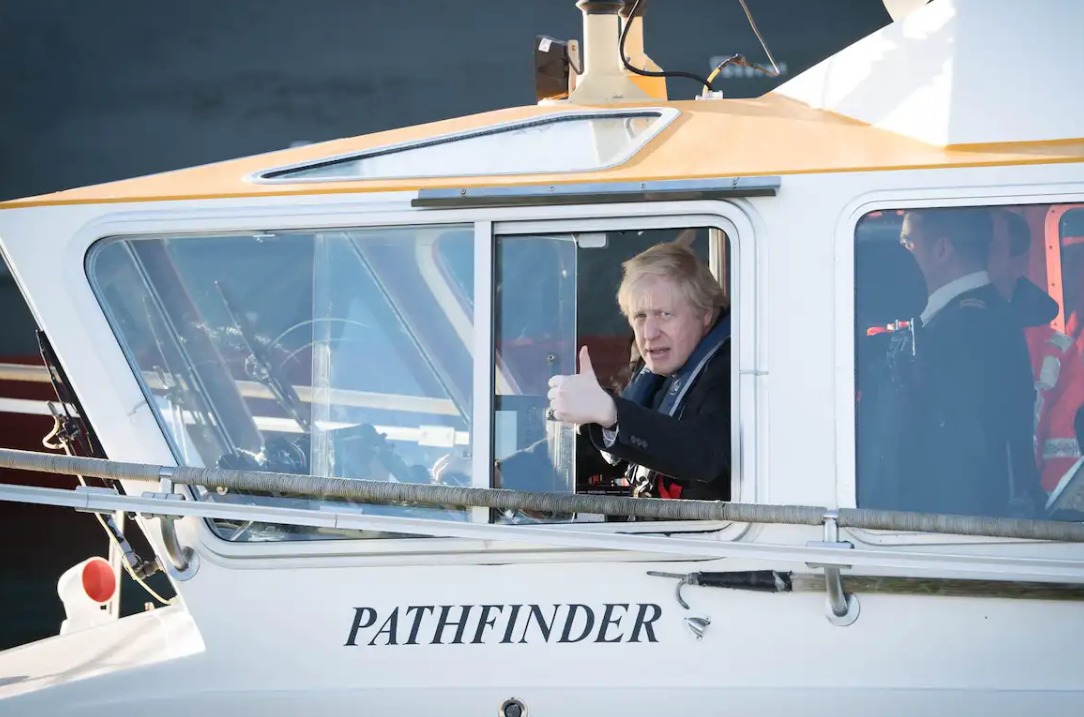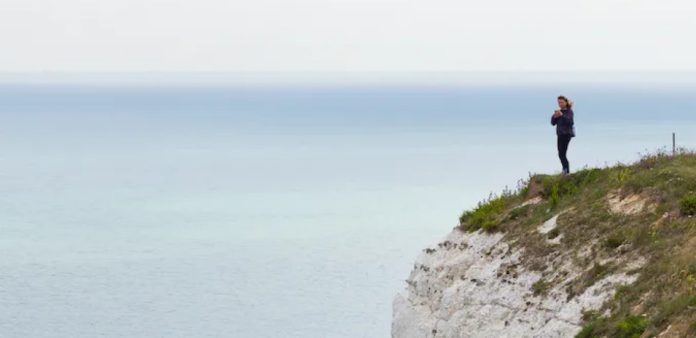[ad_1]
UK overseas coverage has lengthy been formed by a specific geopolitical approach of conceiving the nation’s place on the earth. This island identification might have been cast in imperial occasions, nevertheless it stays vastly related within the post-Brexit world.
With a purpose to clarify and justify its colossal empire – the most important the world has ever seen – imperial thinkers and politicians depicted the UK as a outstanding little island that was not solely able to operating such an enormous operation, however was positively made for the function.
Its advantageous location within the North Atlantic, near Europe however not entangled with it, gave it an eagle eye on world affairs. What’s extra, the oceanic house that Britain inhabited meant that it was a basically extra cell polity than different landlocked states. Within the imperial creativeness, Calcutta was as shut as Calais, Darwin as close to as Dublin.
In my e-book Geopolitics and Id in British International Coverage Discourse: the Island Race, I clarify how these habits of thoughts have remained essential for UK politicians, even because the empire dwindled. To be an island was to be democratic, sovereign, freedom-loving, cell and a bastion of limitless and international free commerce.
Your sovereign neighbour
After the then French president Charles de Gaulle vetoed British membership of the European Financial Neighborhood in 1963, the Home of Commons was defiant: the UK had a vibrant sufficient future separate from the continent. Even Edward Heath, the prime minister who finally led the UK into the European Neighborhood, advised the Conservative convention in 1973 that “we’re an island race”.
The Falklands Battle supplied ample alternative for Margaret Thatcher to restate a strong island identification that she felt was turning into misplaced. Tony Blair didn’t simply embrace globalisation as a post-cold warfare explanatory idea, he depicted a UK that was ideally suited to this new area of distanceless flows and networks.
These impulses to outline the UK as a sovereign, cell, freedom-loving island helped politicians to navigate the large modifications that occurred since 1945. It ought to subsequently come as little shock that they’ve remained potent on this Brexit period.
Definitely, David Cameron’s starting-gun speech in 2013 stays a startling doc, not least for his prolonged exposition of how deeply the UK being an island has formed its historical past and psychology.
By no means greater than lukewarm about Brexit, “World Britain” was Theresa Might’s try to call the UK’s posture after leaving the EU. It means that the one two decisions for the UK’s overseas coverage are: Europe or the entire extensive world. Certainly, these had been the contours of many Nineteen Sixties debates on European integration.
For World Britain to perform as an idea, it depends on notions of British attain and mobility that hearken again to its maritime imperial heyday slightly than precisely describing its current scenario. The traditionally inclined Boris Johnson embraced the idea. However in some ways, World Britain just isn’t in regards to the current a lot because the previous and the longer term.
Nostalgic politicians (often Conservative) may summon the outstanding little island and its empire; free-trade Brexiteers may level to bountiful futures of commerce agreements. Each teams may level to histories of and aspirations in direction of being buccaneers of free commerce, nimbly spanning the oceans to deliver prosperity and democracy to the world. For World Britain fanatics, the world stays an area with out distance, prepared for maritime exploitation.


This additionally informs the more moderen “Indo-Pacific tilt”, wherein the UK seems to grow to be a strategic participant within the huge and diversified area spanning each Indian and Pacific Oceans. How a lot clout the UK truly has right here is very debatable, however the Aukus pact, the new defence settlement with Japan and the Complete and Progressive Settlement for Trans-Pacific Partnership not less than demonstrates ambition.
What’s an island within the twenty first century?
Because the UK seems to outline a brand new place and function for itself on the earth outdoors of the EU, it’s falling again on time-honoured notions of island identification. But there’s far much less unity about what it means to be an island on this fractious twenty first century than there was through the imperial period.
The debates about how one can enact Brexit have been marked by profound disagreements over whether or not the UK’s comparatively small measurement is advantageous or the alternative; whether or not the UK, as an offshore island, ought to interact carefully with the remainder of Europe or disconnect; and whether or not and the way a lot the UK may look to be embraced by the remainder of the world, particularly its “kith and kin” of the Commonwealth.
Though the prospect of Scottish independence seems to have receded since its Nicola Sturgeon-era excessive watermark, the SNP’s strident articulations of Scotland as a European, Celtic and even quasi-Scandinavian nation represents a basic problem to the customarily unifying idea of British islandness. That is to say nothing of Northern Eire.
Many historians have argued that the empire supplied the glue between the constituent elements of the UK. With out the empire or the EU, are we now seeing the true nature of a disunited Kingdom? Maybe Britishness is only a fig leaf for English nationalism. This would definitely clarify the renewed significance of island identification to unionist politicians as they search to outline not simply the UK’s place on the earth, however its very future as a union.
This text was initially printed in The Dialog on 19 July 2023. It may be accessed right here: https://theconversation.com/the-uks-island-identity-has-long-shaped-its-political-outlook-is-that-why-it-currently-feels-so-adrift-209276
In regards to the Creator
– is a researcher and instructor of Worldwide Relations and Politics on the College of Sussex Worldwide Research Centre. His e-book, ‘Geopolitics and Id in British International Coverage Discourse: The Island Race’, is printed with Routledge in July 2023. His analysis pursuits embody vital geopolitics, British politics, overseas coverage, nationwide identification and discourse. He has written for the key educational journals ‘Political Geography’ and ‘Geopolitics’ and the ‘Technique within the Up to date World’ textbook. As a speaker, he has not too long ago addressed a Labour Social gathering department assembly and a convention of Geography lecturers on what Brexit means for British overseas coverage and identification.
[ad_2]



